第21章 LETTER IV(3)
On another day I was carried eighteen miles through Canton on a chair by four coolies, Mr. Smith and his brother walking the whole distance--a great testimony to the invigorating influences of the winter climate. As to locomotion, one must either walk or be carried. A human being is not a heavy weight for the coolies, but it is distressing to see that the shoulders of very many of them are suffering from bony tumors, arising from the pressure of the poles. We lunched in the open air upon a stone table under a banyan-tree at the "Five-storied Pagoda" which forms the north-east corner of the great wall of Canton, from which we looked down upon the singular vestiges of the nearly forgotten Tartar conquest, the walled inner city of the Tartar conquerors, containing the Tartar garrison, the Yamun (official residence) of the Tartar governor, the houses of the foreign consuls, and the unmixed Tartar population. The streets of this foreign kernel of Canton are narrow and dirty, with mean, low houses with tiled roofs nearly flat, and small courtyards, more like the houses of Western than Eastern Asia. These Tartars do not differ much in physiognomy from the Chinese. They are somewhat uglier, their stature is shorter, and the women always wear three rings in their ears. I saw more women in a single street in one day in the Tartar city than I have seen altogether in the rest of Canton.
The view from that corner of the wall (to my thinking) is beautiful, the flaming red pagoda with its many roofs; the singularly picturesque ancient gray wall, all ups and downs, watch-towers, and strongholds, the Tartar city below, with the "flowery pagoda," the mosques, the bright foliage of the banyan, and the feathery grace of the bamboo; outside the wall the White-Cloud hills, and nearer ranges burrowed everywhere for the dead, their red and pink and orange hues harmonized by a thin blue veil, softening without obscuring, all lying in the glory of the tropic winter noon-light without heat, color without glare. Vanish all memories of grays and pale greens before this vividness, this wealth of light and color! Color is at once music and vitality, and after long deprivation I revel in it. This wall is a fine old structure, about twenty feet wide and as many high, with a broad pavement on which to walk, and a high platform on the outside, with a battlement pierced for marksmen. It is hardly ever level for ten yards, but follows the inequalities of the ground, and has picturesque towers which occur frequently. It is everywhere draped with ferns, which do not help to keep it in repair. The "Five-storied Pagoda" which flames in red at one of its angles, is a striking feature in the view. As we sat on stone seats by stone tables in what might be called its shadow, under the cloudless heaven, with the pure Orientalism of the Tartar city spread out at our feet, that unimaginable Orientalism which takes one captive at once, and, like the first sight of a palm or a banana, satisfies a longing of which one had not previously been conscious, a mundane disappointment was severely felt. We had been, as the Americans say, "exercising" for five hours in the bracing air, and I had long been conscious of a craving for solid food which no Orientalism could satisfy; and our dismay was great not only to find that the cook had put up lunch for two when there were three hungry persons, but that the chicken was so underdone that we could not eat it, and as we were not starving enough to go and feed at a cat and dog or any other Chinese restaurant, my hosts at least, who had not learned that bananas are sustenance for men as well as "food for gods," were famished. As we ate "clem pie" or "dined with Duke Humphrey," two water buffaloes, dark gray ungainly forms, with little more hair than elephants, recurved horns, and muzzles like deer, watched us closely, until a Tartar drove them off. Such beasts, which stand in the water and plaster themselves with mud like elephants, are the cows and draught oxen of China. Two nice Chinese boys sat by us, and Mr. Smith practiced Chinese upon them, till a man came out angrily and took them away, using many words, of which we only understood "Barbarian Devils." The Cantonese are not rude, however. A foreign lady can walk alone without being actually molested, though as a rule Chinese women are not seen in the streets. I have certainly seen half a million men, and not more than ninety women, and those only of the poorest class. The middle and upper class women never go out except in closed palanquins with screened windows, and are nearly as much secluded as the women of India.